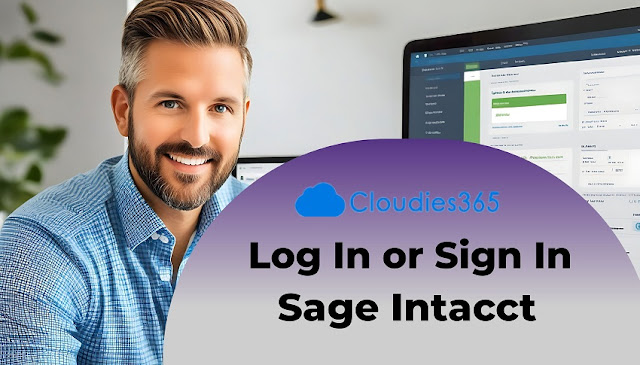The Benefits of Migrating from AccountEdge to QuickBooks
Are you tired of wrestling with outdated accounting software? Do you dream of a more streamlined and efficient way to manage your business finances? Well, it's time to make the switch from AccountEdge to QuickBooks! In this blog post, we'll explore the numerous benefits of migrating to QuickBooks and why so many businesses have already made the leap. Whether you're a small startup or an established enterprise, QuickBooks offers a wide range of features that will take your financial management to new heights. So buckle up and get ready for a smoother ride as we delve into the advantages, key features, migration process, common challenges (and solutions!), and testimonials from companies who have successfully transitioned from AccountEdge to QuickBooks. By the end of this post, you'll be convinced that making the switch is not only worth it but essential for your business growth. Let's dive in!
Introduction to AccountEdge and QuickBooks
AccountEdge and QuickBooks are both popular accounting software options that cater to the needs of businesses of all sizes. AccountEdge has been a reliable choice for many years, offering features such as invoicing, inventory management, and payroll processing. However, as technology advances and business requirements evolve, QuickBooks has emerged as a frontrunner in the market.
QuickBooks provides several advantages over AccountEdge that can greatly benefit businesses. One major advantage is its user-friendly interface and intuitive navigation system. Even those with limited accounting knowledge can easily navigate through the software without feeling overwhelmed. Additionally, QuickBooks offers seamless integration with other applications and tools commonly used in business operations.
Another key feature that sets QuickBooks apart is its ability to handle complex financial tasks efficiently. From managing accounts payable and receivable to generating detailed financial reports, QuickBooks simplifies these processes while providing accurate results.
Furthermore, QuickBooks boasts a robust ecosystem of third-party integrations that can enhance your overall productivity and efficiency. Whether you need CRM integration or industry-specific add-ons, there's likely an app available on the marketplace to meet your unique business needs.
While AccountEdge may have served your business well in the past, migrating to QuickBooks opens up a whole new world of possibilities for streamlining your financial management processes. With its user-friendly interface, powerful features designed specifically for businesses' requirements,and extensive integration capabilities,it's no wonder why so many companies are making the switch from AccountEdge to QuickBooks!
The Advantages of Using QuickBooks
QuickBooks is a powerful accounting software that offers numerous advantages for businesses of all sizes. Whether you're a small startup or an established enterprise, making the switch from AccountEdge to QuickBooks can bring several benefits.
One of the main advantages of using QuickBooks is its user-friendly interface. With its intuitive design and navigation, even those with limited accounting knowledge can easily navigate through the system. This saves time and reduces the learning curve for employees, allowing them to focus on more critical tasks.
Another advantage is the wide range of features offered by QuickBooks. From basic bookkeeping functions like invoicing and expense tracking to advanced capabilities such as inventory management and payroll processing, QuickBooks has it all. These features streamline your financial processes, improving efficiency and accuracy in record-keeping.
Furthermore, QuickBooks provides robust reporting tools that offer valuable insights into your business's financial health. You can generate customizable reports that provide details on cash flow, profit margins, customer trends, and more. Having access to these reports helps you make informed decisions about budgeting, forecasting growth opportunities, and identifying areas for improvement.
Additionally, QuickBooks allows seamless integration with other business applications like CRM systems or e-commerce platforms. This integration ensures smooth data flow between different systems within your organization without manual entry duplication errors.
Migrating from AccountEdge to QuickBooks brings significant advantages in terms of usability, functionality, and productivity.
It simplifies your accounting processes, empowers better decision-making through detailed reporting, enhances collaboration between departments through integration capabilities and ultimately helps drive success for your business.
Key Features of QuickBooks for Businesses
QuickBooks is a powerful accounting software that offers a wide range of features designed to streamline and simplify financial management for businesses. Whether you're a small startup or an established company, QuickBooks has something to offer to meet your specific needs.
One key feature of QuickBooks is its ability to easily track income and expenses. With just a few clicks, you can categorize transactions, generate reports, and gain valuable insights into your financial performance.
Another standout feature is the invoicing functionality. QuickBooks allows you to create professional-looking invoices in minutes and send them directly to your clients via email. You can even set up automatic reminders for outstanding payments, ensuring that you get paid on time.
For those who have employees, QuickBooks's payroll feature takes care of all the necessary calculations and deductions. It simplifies the process of paying employees accurately while staying compliant with tax regulations.
Inventory management is also made easy with QuickBooks. You can track inventory levels in real-time, set reorder points, and even generate purchase orders when stock runs low. This helps prevent stockouts and ensures smooth operations for retailers or manufacturers.
Furthermore, with bank reconciliation capabilities built-in, you can easily match transactions from your bank account statements with those recorded in QuickBooks. This not only saves time but also ensures accuracy in your financial records.
Moreover, one significant advantage of using QuickBooks is its integration capabilities with other business applications such as payment processors or customer relationship management (CRM) systems. This means that data seamlessly flows between different platforms without manual intervention – saving precious time by eliminating duplicate data entry tasks.
Steps to Migrate from AccountEdge to QuickBooks
Migrating from AccountEdge to QuickBooks may seem like a daunting task, but with the right steps and guidance, it can be a smooth transition.
Here are the key
steps you need to follow:
1. Evaluate your data:
Before starting the migration process, take some time to review your existing data in AccountEdge. This will help you identify any discrepancies or issues that need to be addressed before transferring the data over.
2. Back up your data:
It's crucial to create a backup of all your AccountEdge files before proceeding with the migration. This ensures that you have a safety net in case anything goes wrong during the transfer.
3. Choose the right version of QuickBooks:
QuickBooks offers different versions tailored for various business needs. Take into consideration factors such as features, pricing, and scalability when selecting the best fit for your organization.
4. Set up your new QuickBooks account:
Once you've chosen the appropriate version of QuickBooks, it's time to set up your new account. Input important company information accurately to ensure seamless integration with other systems.
5. Map out accounts and items:
Review and map out how your Chart of Accounts in AccountEdge corresponds with QuickBooks' chart structure so that financial transactions can be properly categorized after importing them.
6. Import data into QuickBooks:
Use built-in tools or third-party apps designed specifically for migrating from AccountEdge to import critical information such as customers, vendors, products/services lists, outstanding balances etc., into QuickBooks.
7. Validate imported data:
After importing all necessary data into QuickBooks, thoroughly review and cross-check each entry against records from AccountEdge for accuracy and completeness.
Remember that this is just an overview of what should be done during migration; every business has its unique requirements which may necessitate additional steps or considerations before completing this process successfully!
Common Challenges and Solutions in the Migration Process
When migrating from AccountEdge to QuickBooks, you may encounter a few challenges along the way. However, with proper planning and preparation, these obstacles can be overcome smoothly.
One common challenge is ensuring data accuracy during the migration process. It's crucial to carefully review your current data and clean up any errors or inconsistencies before starting the migration. This will help prevent issues such as duplicate entries or missing information in QuickBooks.
Another challenge is training your staff on how to use QuickBooks effectively. While AccountEdge and QuickBooks have similarities, there are also differences in terms of functionality and user interface. Providing comprehensive training sessions or hiring an experienced consultant can help ease this transition for your employees.
Data conversion is another potential hurdle that businesses may face when migrating their accounting software. Converting data from one platform to another requires careful attention to detail to ensure all important financial information is accurately transferred.
Integration with other business systems can also pose a challenge during the migration process. If your company relies on third-party applications or custom integrations, it's essential to assess whether these will seamlessly work with QuickBooks or if additional steps need to be taken for successful integration.
To address these challenges, it's recommended that businesses thoroughly research and plan their migration strategy beforehand. Utilize resources provided by Intuit (the company behind QuickBooks) like guides, tutorials, and online forums where users share tips and best practices for a smooth transition.
By being proactive in addressing potential challenges head-on, you can ensure a successful migration from AccountEdge to QuickBooks without disrupting your day-to-day operations.
Testimonials from Companies Who Have Successfully Migrated
Making the decision to migrate from AccountEdge to QuickBooks can seem daunting for businesses. However, many companies have already taken this leap and are reaping the benefits. Let's hear what some of them have to say about their successful migration experience.
Company A, a small retail business, found that QuickBooks provided them with better inventory management features than AccountEdge. They were able to easily track their stock levels and generate accurate reports, leading to improved decision-making.
For Company B, a growing manufacturing company, migrating to QuickBooks allowed them to streamline their accounting processes. The integration with other software they used helped automate tasks such as invoicing and payroll, saving them valuable time and reducing errors.
Company Coperates in the service industry and needed a solution that could handle complex billing requirements. With QuickBooks' advanced invoicing capabilities, they were able to efficiently manage multiple projects and bill clients accurately.
Another success story comes from Company D, an e-commerce business that needed robust reporting functionalities. By migrating to QuickBooks, they gained access to customizable dashboards and detailed financial reports that gave them deeper insights into their sales performance.
These testimonials highlight just a few of the advantages experienced by businesses who made the switch from AccountEdge to QuickBooks successfully. By choosing QuickBooks as your accounting software solution, you'll join these satisfied customers in enjoying increased efficiency, improved accuracy in financial data tracking, enhanced reporting capabilities – all essential elements for driving growth and success in today's competitive business landscape.
Related Post:- QuickBooks Data Conversion Service: What is It?
Conclusion: Why Making the Switch is Worth It
Migrating from AccountEdge to QuickBooks may seem like a daunting task, but the benefits far outweigh any initial challenges. With its user-friendly interface, robust features, and seamless integration capabilities, QuickBooks has become the go-to accounting software for businesses of all sizes.
By making the switch to QuickBooks, you can streamline your financial management processes and gain valuable insights into your business's performance. From tracking expenses and generating invoices to managing payroll and inventory, QuickBooks offers a comprehensive suite of tools that will save you time and improve efficiency.
Not only does QuickBooks provide powerful features tailored specifically for businesses, but it also ensures data security with built-in encryption technology. Your sensitive financial information will be protected against unauthorized access or loss.
Furthermore, migrating from AccountEdge to QuickBooks opens up opportunities for collaboration with other professionals in your industry. Many accountants and bookkeepers are well-versed in using QuickBooks, making it easier to find support when needed.
But don't just take our word for it – companies who have successfully made the switch have experienced significant improvements in their accounting processes. They praise not only the ease of use but also how seamlessly they were able to transfer their data from Account Edge to QuickBooks.
Also Read:- https://cloudies365.wordpress.com/2023/12/08/switching-from-accountedge-to-quickbooks/




Comments
Post a Comment